Chinese outrage over 'scripted' Olympic commentary on star hurdler
August 24, 2012 -- Updated 0127 GMT (0927 HKT)
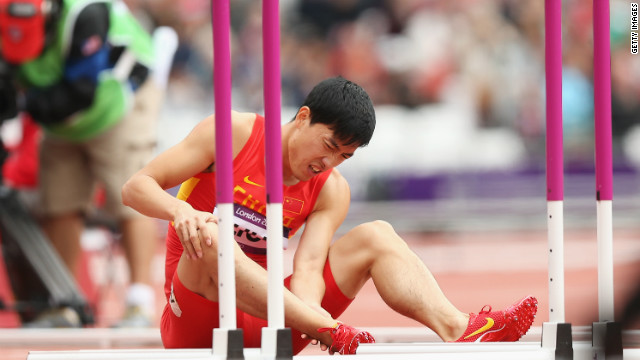
Chinese hurdler Liu Xiang sits on the track after falling seconds into the 110m heats at the 2012 Olympic Games, August 7.
The headline in the
Oriental Guardian -- a local newspaper based in the eastern city of
Nanjing -- referred to a star athlete who had caught the Chinese
public's imagination after injuring himself at the recent Olympic Games.
Liu Xiang, a world
champion in the men's 110-meter hurdles and one of the country's most
famous sportsmen, pulled his Achilles tendon while taking off and
crashed into the first hurdle during his first-round heat in London's
Olympic stadium. He then hopped the full stretch on his left foot,
pausing to kiss the final hurdle, before leaving the track in a
wheelchair.
The high-profile
withdrawal became a glaring moment of disappointment in an otherwise
glorious run for China, which won 88 medals in London, trailing only the
United States in the final medal table. Hosts and reporters at
state-run China Central Television (CCTV), which carried the event live,
turned noticeably emotional as Liu fell. Yang Jian, lead anchor for the
hurdles race, sounded shaken and at times choked up during the
coverage.
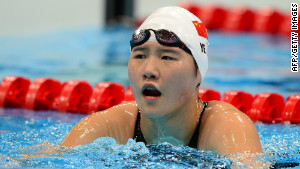 Ye Shiwen strikes gold again
Ye Shiwen strikes gold again
"This is the reality --
this is the cruelty of competitive sports," Yang was heard saying on
air. "Liu Xiang is like a soldier -- when he realized he couldn't reach
the finish line, he rose above himself."
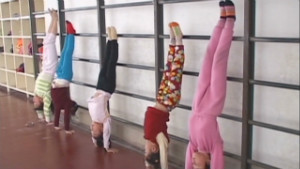 Why has China done so well in London?
Why has China done so well in London?
Then came the claims that prompted critics to blast CCTV's coverage of the saga.
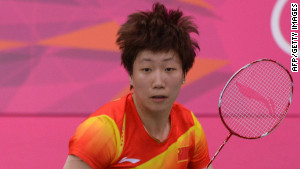 Booted Chinese badminton player quits
Booted Chinese badminton player quits
Local media reported
that, in a largely self-congratulatory meeting Wednesday reviewing its
Olympics coverage, CCTV officials revealed they were aware of Liu's
"serious injury" before the race and approved four scripts for the
anchors -- including the so-called "choked up" option apparently used on
air. The story was widely reported by news outlets across China and
featured prominently on major web portals through most of Thursday.
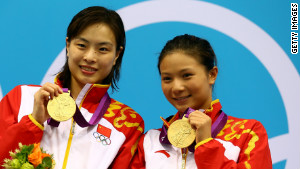 Diver wins gold, learns tragic news
Diver wins gold, learns tragic news
CCTV has no public
relations department to respond to questions about its coverage, but
sources at CCTV confirmed to CNN that an Olympic coverage meeting did
take place. However, they declined to comment on what was discussed --
and asked that their names not be used -- because of the sensitive
nature of the matter. By Thursday night, Chinese news articles on the
meeting mostly disappeared online and some links to the original stories
on social media sites appeared dead.
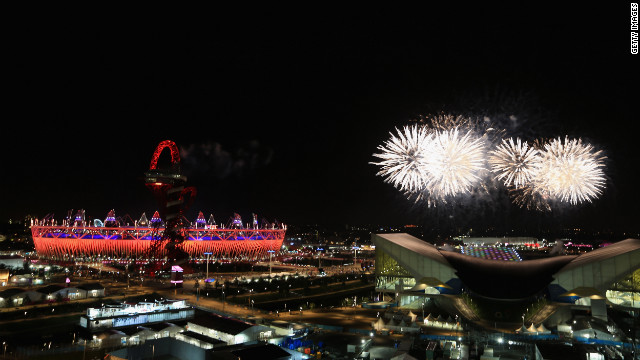 Photos: Olympics closing ceremony
Photos: Olympics closing ceremony
Meanwhile CCTV broke its
silence late Thursday night, reporting that Liu had stitches from his
August 9 ankle surgery in London removed in Shanghai earlier that day.
The 29-year-old hurdler defended his actions at the Olympics, insisting
he felt healthy before the starting pistol fired.
"When I lost my balance
at the first hurdle, I felt my foot was whipped by someone and then I
fell," he recalled. "I didn't know what was going on and just felt a lot
of pain. I was sitting on the ground in pain and felt totally blank."
"When a stadium worker
pushed out a wheelchair, I saw it and didn't want to sit in it," he
added. "So I hopped to the finish line. When I passed the final hurdle,
this thought just popped up in my mind and I wanted to kiss that
hurdle."
Despite government
censors' best effort to keep Liu's story positive after the event, many
people had been questioning the reasons behind Liu's decision to
participate if, indeed, the severity of his injury was known.
On Sina Weibo, China's
equivalent of Twitter, users posted more than 38 million messages on the
subject by Thursday afternoon. Most recent posts appeared critical of
Liu -- "feeling cheated" was among the most commonly cited reactions.
On Netease, a major web
portal, users seemed to be equally unforgiving. Many demanded an apology
from Liu, while others called CCTV shameless for "co-starring with him
in a world-class farce." One of the most reposted comments read: "A
group of con men spend taxpayers' money and cheat on everyone's feelings
so that they can make more money for themselves - what kind of world is
this?"
Our priority is to protect athletes, if we could have predicted he would be injured, no one would have let Liu run
Feng Shuyong
Feng Shuyong
Like all other Chinese
athletes, Liu is the product of a government-sponsored sports system
that feeds, houses and trains athletes. Unlike most others, however, he
has been a national hero for years and made millions of dollars in
endorsements.
The Shanghai native shot
to international stardom when he won in the 110-meter hurdles race at
the 2004 Summer Olympics. At 12.91 seconds, Liu's performance in Athens
is the fastest Olympic record to date and his victory secured China its
first gold medal in men's track and field.
His income from
endorsements surged after the Athens Games, jumping from a mere $250,000
in 2004 to more than $25 million in 2008, second only to basketball
star Yao Ming, according to Forbes magazine.
Although his fortune
suffered a sharp decline after he pulled out of the 2008 Beijing
Olympics due to injury, Liu remains one of the top earners among Chinese
athletes, with his near-ubiquitous image advertising products ranging
from Nike shoes and BMW cars to imported nutrition supplements and local
milk.
Chinese sports officials
have vehemently denied the claim that their vested interest in Liu's
commercial success -- the sports authority is entitled to a considerable
cut from an athlete's endorsements income -- played a role in his
decision to compete at the Olympics despite his injury.
"Our priority is to
protect athletes, if we could have predicted he would be injured, no one
would have let Liu run," Feng Shuyong, China's athletics team leader at
the London Games, told the state-run Xinhua News Agency when the
controversy first erupted.
Not all supporters have
abandoned Liu, though. Echoing online sentiment that Liu is a victim of
the system, some analysts say the hurdler should not be blamed.
"Liu Xiang's team and
the Chinese sports authority should take the blame," said Guan Jun, a
columnist for the Chinese edition of Sports Illustrated. "They operate
with taxpayers' money -- so they have the responsibility to clarify to
the public and explain why they concealed the truth."

ไม่มีความคิดเห็น:
แสดงความคิดเห็น